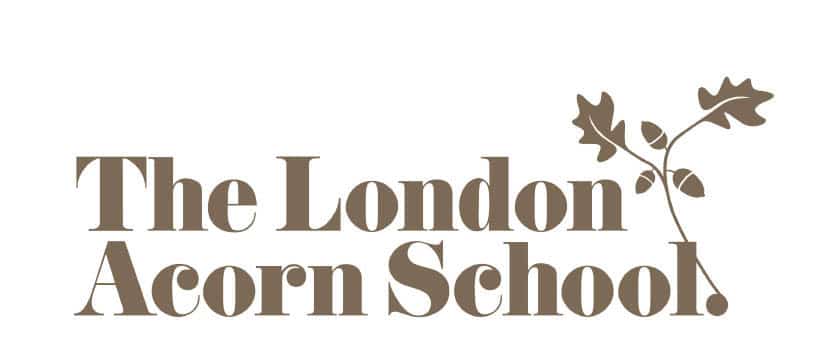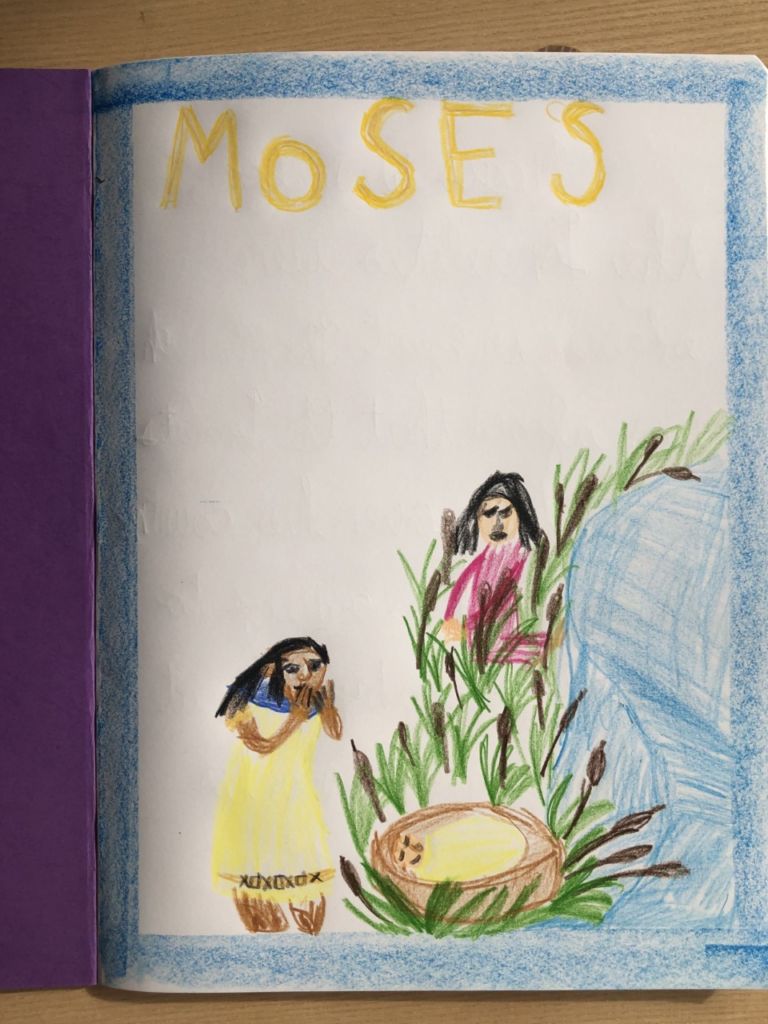
One of the overarching Main Lesson themes for Class 3 is The Old Testament Stories.
“Stories from the Old Testament speak to the child’s growing independence and the first stirrings of true logical thought. The ability to understand right and wrong is reflected in Moses giving his people the Law and, as this is no straightforward process, the nine-year-old can inwardly relate to the way the Israelites accepted that Law! The struggle to overcome jealousy and revenge, questions of what is right and wrong, and when to have faith in authority, are all present in the Old Testament as they are in most nine-year-olds. By absorbing these stories the child will also gain an inner understanding of both Judaism and Christianity, something really important to an appreciation of our Western culture, even if you and your family are neither Jewish nor Christian.” Donna Simmons, The Christopherus Waldorf Curriculum Overview for Homeschoolers
This has been a wonderful main lesson to work through at home. Apart from having rich stories to share, question and discussions, the content allows for the development of a wide range of skills.
Children practised their penmanship, taking care to write out short pieces from the stories we worked through.
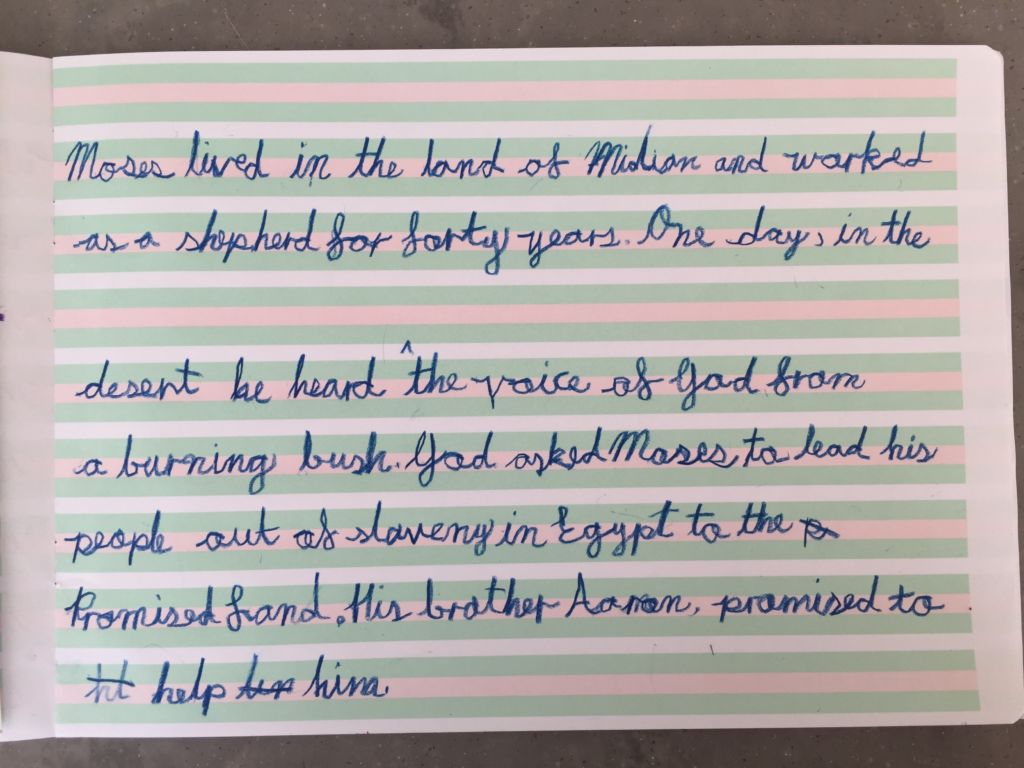
Class Three students have created their very first newspaper articles, writing about the first of the ten plagues of Egypt. Some children became really excited about creating a realistic newspaper, including advertisements that could have been relevant in Biblical Egypt and even other micro stories.
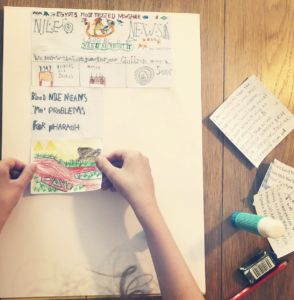
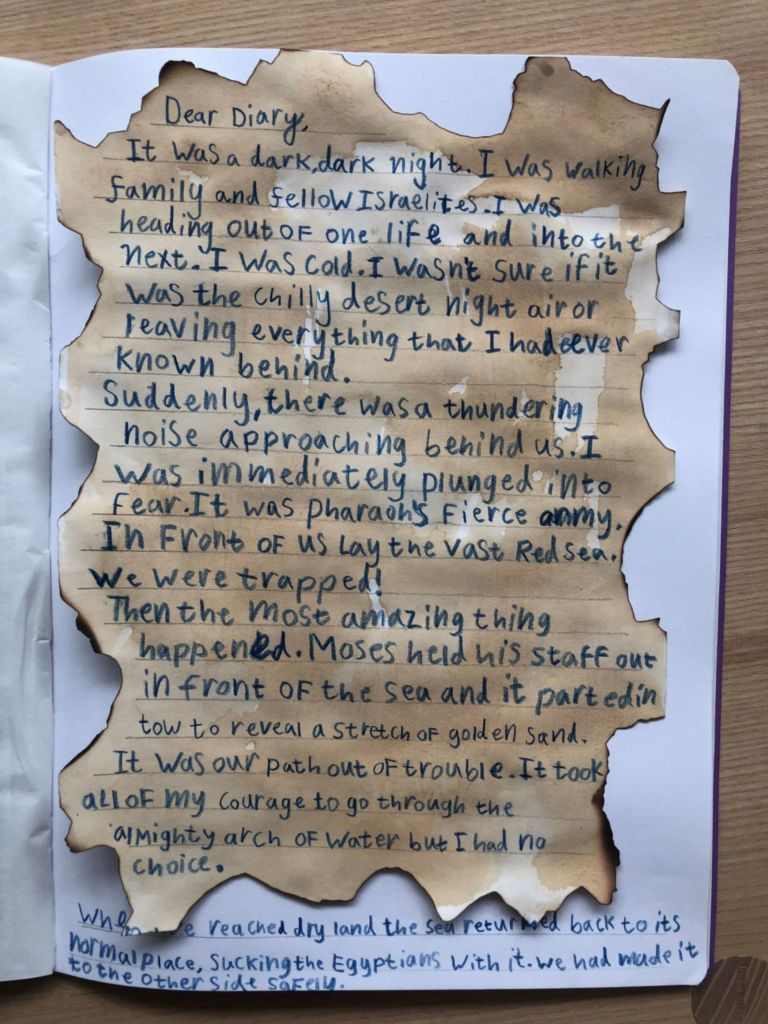
Diary Entry pieces also emerged from our studies of the Old Testament Stories, with children developing creative writing imagining that they were one of the tribe of Israelites crossing the Red Sea with Moses.
A Biblical Map of Egypt was created as the children’s very first attempt at creating their own map. The children explored the compass and directions, rivers and other bodies of water, man-made landmarks. Indigenous animals, physical lay of the land and the distance travelled by the Israelites.

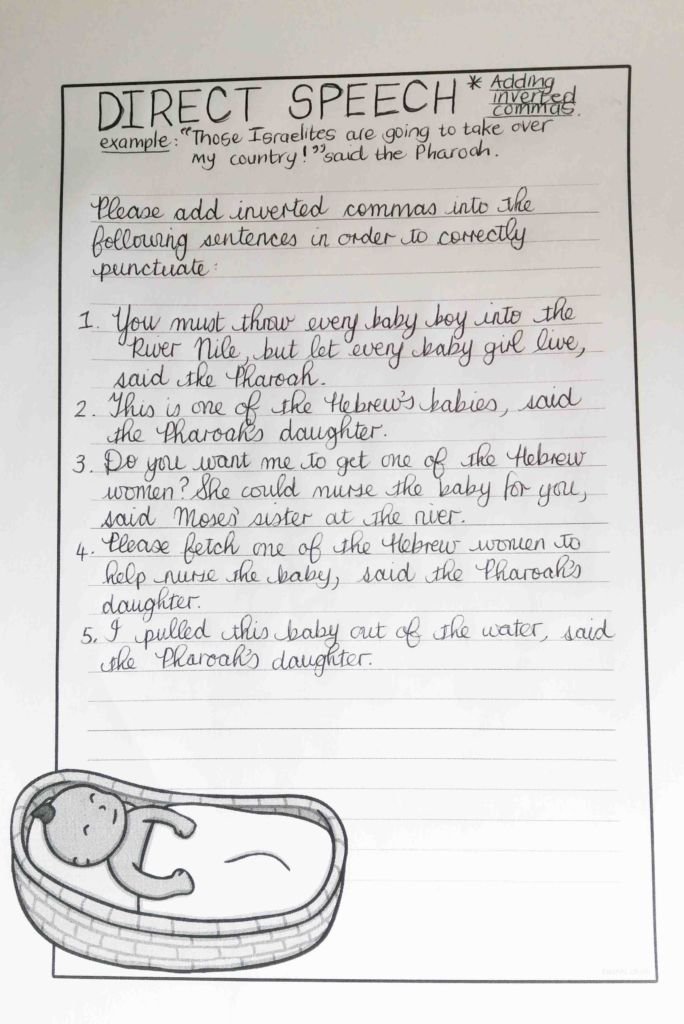
Direct and Indirect Speech was explored through a series of activity sheets, which have been designed for daily extension. The children have had great success with these skills. The day following each written activity saw us role playing our direct and indirect speech in order to check in, correct and celebrate progress.
